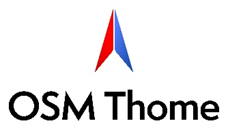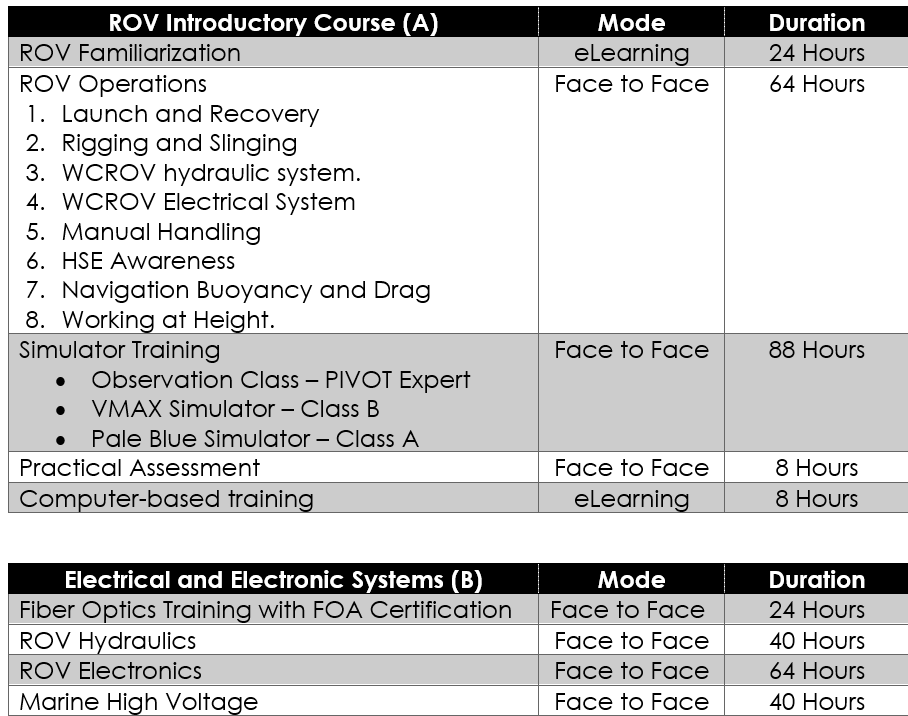Scope and Purpose
This course is created in compliance with the STCW chapter V Regulation V/1-1 required for ratings assigned with specific duties and responsibilities related to cargo on oil tankers.
- Table A-II/1 Bridge Resource Management
- Table A-III/1 Engine Resource Management
- Table A-II/2 and A-III/2 Use of Leadership and Managerial Skills
- Table A-II/1, Table A-III/6 Application of Leadership and Teamworking Skills
Apply changes in behavior of the officers and crew to better resource management practices during everyday operations and increase safety, efficiency, and job satisfaction onboard
- State three (3) levels of situational awareness
- State the “three truths”
- Explain the need for cultural awareness
- State principles of good communication
- Define challenge and response
- State policies for responding to and learning from errors
- Define authority and assertiveness
- State how to delegate correctly
- Describe five (5) steps of short-term strategy
- List factors that affect the state of the ship
- State how to control automation effectively
- State five (5) management styles
- State strategies for dealing with emergencies
- State the factors affecting judgment and decision-making
- Explain important factors for managing crowd in a crisis
- Demonstrate through SLE and case analysis all the knowledge, understanding and proficiency acquired during training
-
Work permit, risk assessment and safety checklist
-
Safety aspects of various operations in oil and product tankers
-
Hazards associated in oil and petroleum products
-
Proper use and maintenance of various equipment used in cargo operations
-
Facilitation shall take place through a combination of e-learning, virtual classroom reflective learning, and case analysis.
- The course is applicable to all Bosun and Pumpman
- Participants should have taken the BTOC prior attending this webinar.
- Following should be completed:
- Tanker Operations I CBT# 0012
- Oil Tanker Training System Advanced CBT# 0169
- ILearn
- e-Learning: 5.0 hour
- Virtual Classroom: 6.0 hour
ROV Hydraulics
This module is in line with IMCA Guidance Documents and Syllabi for ROV Pilot Technician:
Learning Objectives
- Define the principles of pressure.
- Define the principles of flow.
- Identify the symbols used in hydraulics.
- Explain the reason for the use of the hydraulic system.
- Describe the types, use, and operation of hydraulic system components.

About the Program
Our ROV Pilot Technician Course fulfills and exceeds IMCA R02 requirements for IMCA-approved ROV introductory training courses and IMCA C005 guidance on competence assurance and assessment: Remote Systems & ROV Division. The nine-week training also adheres to IMCA R 004: The Safe and Efficient Operation of Remotely Operated Vehicles.
The course has been designed for students who initially lack the essential knowledge but demonstrate the necessary skills or relevant technical qualifications to become proficient ROV Pilot Technicians.
Qualifications
- Licensed Engineer:
- Electrical Engineer
- Electronics Engineer
- Marine Engineer
- Mechanical Engineer
- Mechatronics Engineer
- At least three (3) years of experience related to the field of discipline.
- At least INTERMEDIATE in Overall Level of Spoken English (TOSE)
- With a valid SIRB (Seaman’s Book) and passport.
Course Modules
- ROV Familiarization
- ROV Electronics
- ROV Simulator Training
- Marine High Voltage
- Launch and Recovery System
- Fiber Optics, Tether and Umbilical
- Fiber Optics Technician Course
- Rigging and Slinging
- Hydraulics System
- •Work Class ROV Electrical System
- HSE Awareness
- Manual Handling
- Work Class ROV Hydraulic System
- Working at Height
- Navigation, Buoyancy and Drag
Course Aims
- Awareness of the offshore industry codes of practice, legislation, and guidelines.
- Understanding of requirements for traveling to offshore sites by helicopter.
- Understanding of safety culture in the offshore industry.
- Electrical safety awareness and understanding of electrical isolations, including lockout/tagout systems.
- Understanding the dangers of high energy systems (electrical, pneumatic, or hydraulic) and associated good safety awareness.
- Confidence to carry out task risk assessments (TRA) and toolbox talks (TBT) to company requirements.
- Understanding of the oil and gas industry.
- Understanding of ROV business lines and associated requirements.
- understanding of offshore living on different offshore platforms and vessels.
- Awareness of the offshore working environment of and the importance of teamwork.
- Awareness of a trainee’s duties and their role in the ROV crew.
- Understanding of launch and recovery systems (LARS) and awareness of risks.
- Basic ROV piloting skills include navigation, station keeping, tracking, close visual inspection, and tether management.
- Understanding of all appropriate documentation.
- Recognition of ROV system components.


Contact Us
Maritime Leaders Academy
4th Floor Ma Daniel Bldg
470 San Andres Street, Brgy 700, Malate 1004 Manila, Philippines




